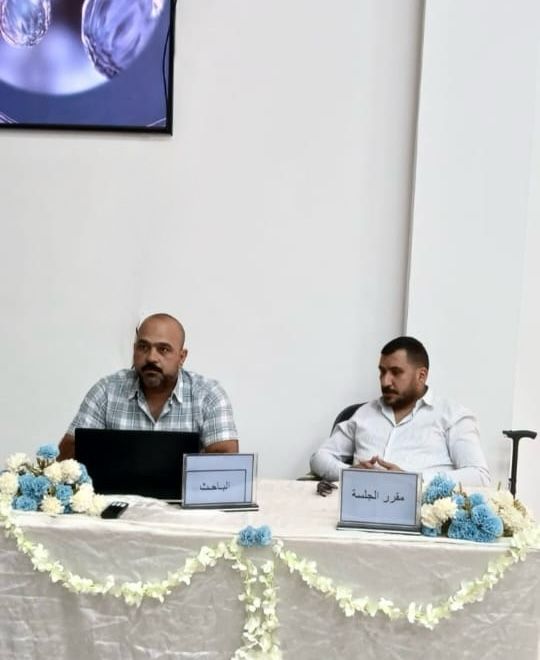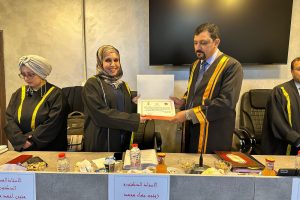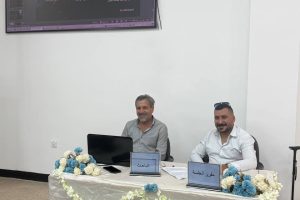A scientific lecture explores the prospects of nanotechnology in combating plant diseases
As part of the Environmental Research Center’s cultural season, Assistant Professor Ali Nasser Ali delivered a distinguished scientific lecture entitled “The Future of Nanotechnology in Plant Pathology,” in which he reviewed the most promising applications of this technology in the fields of agriculture and plant protection.
The lecturer pointed out that nanotechnology opens new horizons for developing multiple methods for suppressing plant diseases in greenhouses and fields, in addition to improving diagnostic methods and creating advanced tools for molecular control of plant interactions with pathogens.
He explained that the applications of nanomaterials, especially carbon-based ones, still require further research to fully understand their impact, especially since their behavior may vary depending on plant species and environmental conditions. He also addressed the limitations and challenges that must be addressed, including: responding to health risks, the fate of nanomaterials in the environment and food chain, and the impact of climatic conditions and other pests on the effectiveness of the technology.
He also highlighted the potential of using green synthesis of copper nanoparticles and other compounds as environmentally sustainable and efficient solutions in organic agricultural systems. However, he noted the need to develop these particles in a way that reduces their tendency to aggregate and lose effectiveness over time





